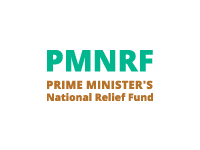E-Mail Discussion Forum for Library and Information Services
T.B. Rajashekhar
Meenaxi Gulla
National Centre for Science Information
Indian Institute of Science, Bangalore-560012.
[LIS-FORUM is a facility for the exchange of notes, views and expressions on library and information science:
technologies, products and services, tools and techniques, etc. All are welcome to join this
NISSAT-NCSI endeavour. Those interested may contact the NCSI directly—Editor]
Abstract E-mail based discussion forums are one of the early applications of e-mail developed on networks like Bitnet, which have become very popular on Internet also. Using email as the medium, forums enable informal communication among a group of people in a specific area, irrespective of their geographical location. Computer software used to set up and operate a forum on a network computer, is called as the list server. There are several such public domain softwares available with much commonality in their features. These have been used to operate hundreds of forums on the Internet. Electronic guides also exist facilitating easy identification of forums in specific areas. LIS-FORUM has been set up on a network computer at NCSI, to meet the communication needs of users and providers of library and information services in India. The article describes operational features of discussion forums, their relevance, forum software, and its components. It then discusses the features of LIS-FORUM, current status and future plans.
1. Introduction
Electronic mail (E-mail) is the service most commonly available on computer networks. It is also perhaps the least expensive of network services. It is a store-and-forward messaging facility providing an effective and efficient means of one-to-one, one-to many and many-to-one communication. With the global connectivity of computer networks made possible today by the Internet, e-mail has become all pervasive. With the availability of improved email related protocols like SMTP (Simple Mail Transfer Protocol) and MIME (Multi-media Internet Mail Exchange), and user friendly client programs (e.g. EUDORA, Pine), email handling has become more easy and efficient. Though the World Wide Web (WWW) related traffic is overtaking all other network services, e-mail continues to be preferred mode of personal and group communication.
Exposure to many of these e-mail based tools and services goes back to 1992 when NCSI got e-mail connectivity to the Internet through ERNET node in IISc. NCSI subscribed to forums such as PACS-L1 and IR-L2 and e-jounals such as PACS-Review and PACS-News in the area of IT based library and information services. Every day several interesting messages posted by workers in this area were received from all over the world. While the postings on the forums were informal and often brief, the articles appearing in the e-journal PACS-Review were peer reviewed and discussed current technologies and their applications in much more detail. All these were free and once subscribed through the simple act of sending a one line e-mail message to the server computers, messages posted from around the world would then start arriving into the e-mail boxes without any further effort. NCSI quickly realised the great potential of forums as current awareness tools for improving professional knowledge and competence. Surely there are negative aspects of forums—one has to wade through several irrelevant messages for every one or two useful messages. But these useful ones served as very useful supplements to the developments reported in print journals such as `Database', `Online', `CD-ROM Professional', etc. Since such a forum was not operating in India NISSAT and NCSI thought it would be interesting and useful to set up and operate such a forum in the area library and information services. The project was sponsored by NISSAT/DSIR and initiated in April, 1994. The discussion forum, called as LIS-FORUM, was launched in November, 1994, after installing and testing the required software and hardware.
2. Forums, Forum Addresses and Forum Software
Discussion forums, also known as "Lists", "Computer conferences", "Mailing lists", "Discussion groups", "List servers" or "Mail servers", are those in which a person (scholar, professional, etc.) can carry out discussion with a group of people having similar interests. The discussion is carried out either by putting question to such forums or by letting others to know about latest things happenings in that particular area. Discussions are carried out using e-mail. The terms "Discussion forum", "Forum", "Mailing list" and "List" are used interchangeably.
The operation of discussion forums is automated and controlled using a computer program, called the list server. It resides on a network computer, which can be used to set up and maintain one or more lists covering different topics. It maintains names and e-mail addresses of all people who are currently subscribed to different forums. This address list is automatically updated whenever new subscription requests are received. When a person mails one message (called a "posting") to the list server, it then "explodes" the addresses and sends copies to each member of that list.
In addition to processing subscription requests and distributing messages, list servers also support various functions like unsubscribing, resetting mail distributions status, sending list of members of a forum, etc. Apart from these functions it also maintains a database of messages (called archive). This archive has a copy of every message that was distributed on a mailing list. Users can search for information and retrieve old messages from the archive.
2. Moderate List
A list may be moderated in which case the list owner (moderator) decides which messages are made public and which are flushed. Mail submissions to the list are automatically brought to the attention of the list moderator by the list server. This person is responsible for deciding which mails are appropriate for a list. Moderators review these mails and if it meets required terms then it is sent to rest of the list. Usually moderator weeds out off-topics posted to a list.
2.2 List and List Server Addresses
It is important to note that there are two e-mail addresses related to discussion forums—the forum (or list) address and the list server address. A message to be distributed to the members of a list is sent to the list server address. While messages are free formatted and created using an editor or mail front end software (e.g. mailx, pine, eudora), requests that are sent to the server address have specific syntax which the users have to follow, to get suitable response from the server.
For e.g., the corresponding addresses of the popular list PACS-L are :
pacs-l[at]listserv[dot]uhupvm1[dot]uh[dot]edu (list address) and
listserv[at]uhupvm1[dot]uh[dot]edu (list server address).
This fact is often overlooked by the users of lists, resulting in situations where messages for distribution are sent to the server address and the requests are sent to the list address.
2.3 Components of Mailing Lists
The components of mailing list software are described below. A schematic of these components is shown in Fig. 1.
2.3.1 Mail Processor
This parses the messages posted to the forum. This is
the program that will be running always in the background. It looks for mails to this mailing list. If there is a command to the list server, then it is passed to the COMMAND PROCESSOR or if it is a message for distribution on the list then it is passed to MAIL SERVER.
2.3.2 Command Processor
Processes commands sent to the list server.
2.3.3 Mail Server
This distributes mails from a sender to all other users of the list.
2.3.4 Archive Server
This searches the archive for a particular information, requested by a user through search command and mails the search result to the requester.
Functioning of the list server can be viewed as shown in Figure.
Components of a mailing list [Figure]
2.4 List Server Software
There are a few well known softwares4 used for operating discussion forums. These include Anastasios Kotsikonas's listproc software for Unix systems (which has been used to set up list servers of both listserv and listproc type), Eric Thomas' listserv (for IBM machines, developed originally for Bitnet), majordomo, mailserv and mailbase (popular in U.K). While most of these list server softwares support similar features, they have slight variations in terms of the formats of commands used. Details of features supported can be obtained by sending a `help' message to the server address. This means that user should know the server type of the concerned list. For example, if I know that `Listserv' is the server used for operating the list pacsl[at]uhupvml[dot]uh[dot]edu, then I can send the `help' message to listserv[at]uhupvmi[dot]uh[dot]edu to get the server specific details. List server software for Windows'95 and other operating system platforms is expected to be available soon5.
3. Relevance of Forums
Participation in discussion forums can be beneficial for several reasons. A few of these are mentioned here.
-
Fast exchange of informal information.
-
One can communicate with several people from different parts of the world within a short duration.
-
It is not required to know how the forum is operating technically. One can simply join such forums and start receiving messages. One can also contribute to such forums by raising certain topics or can reply to messages contributed by others. Here purpose is not only delivery of data in response to query but also support communication among a large number of people.
-
Find new peer workers.
-
Enable posing problems (`does anybody know?') and seek solutions.
-
Become aware of network information sources, an increasingly important issue over the Internet today.
Equally important is that forums enable the participants to explore more fully the potentials of electronic communication and to develop more sophisticated network skills.
4. How to Find Such Mailing Lists on Internet?
Several electronic guides exist on the Internet, facilitating identification of forums in specific areas. Most of these guides support multiple ways access - subject, keyword search, etc. Following is a non-exhaustive list of such guides.
i) List : Directory of e-mail discussion groups
List claims to be the world's largest directory of mailing lists - 54,000 listserv, listproc, majordomo and independently managed lists from 1803 sites . Supports a powerful search facility enabling quick identification of mailing lists.
URL : http://www. liszt.com/
ii) Vivian Neon's list of lists
This is another searchable directory of mailing lists, but not ast comprehensive as liszt directory
(URL : http://catalog.con/vivian/interest-group-search.html)
iii) Publicly accessible mailing lists by stephen de Salva.
URL: http://w.w.w. Neo Soft.com/internet/paml/index sources.html.
iv) ARL Directory of Electronic Journals
The Directory of Electronic Journals, Newsletters, and Academic Discussion Lists, maintained by the Association of Research Libraries. The printed version of the Directory is available from the Office of Scientific and Academic Publishing of the Association of Research Libraries. To obtain it, send a message to OSAP[at]cni[dot]org.
URL : gopher://arl.cni.org:70/11/scomm/edir
v) 10th Revision Directory of Scholarly and Professional E-Conferences, by Diane Kovacs :
URL: http://www.n2h2.com/KOVACS
gopher://gopher.Usask.ca/1/computing/Internet Information/Directory of Electronic Conferences
E-mail : It is possible to get subject portions of this directory by e-mail. First get all subjects contained by sending the message "GET ACADLIST README F = MAIL to LISTSERV[at]LISTSERV[dot]KENT[dot]EDU. Then, for lists related to subject x, send the message "GET ACADLIST X F= MAIL" (e.g. GET ACADLIST LIBRARY F = MAIL).
vi) Internet mailing lists (URL : http://title.net/lists/)
vii) Library oriented discussion lists and electronic serials:
This web document, maintained by the library staff at the University of Houston, USA, is a compilation of electronic discussion lists, distribution lists and electronic serials which are of interest to library professionals and staff
(URL : http://info.lib.uh.edu/liblists/home.htm).
5. LIS-FORUM - Goals and Features
The discussion forum LIS-FORUM has been set up on a 486/DX2 computer system at NCST, running Unix SVR 4.2 operating system. The system, which also acts as the Centre's e-mail server, is connected to the ERNET/Internet node via the IISc campus LAN. Use of SMTP/Sendmail protocols ensure efficient processing of e-mails.The list server software currently used for managing LIS-FORUM is the Listproc (Version 6.0c) developed by Anastasios Kotsikonas. This is available as freeware on the Internet. This software is capable of running up to six lists, simultaneously. Curently only LIS-FORUM has been set up on the NCST server. Furthermore, the forum has been configured as a lightly moderated list.The forum is currently operated as a free service. No registration or renewal fee needs to be paid.
The main objectives of lis-forum are:
- To act as an electronic forum (or conference) for library and information professionals, managers, educators and users of library and information systems and services.
-
To discuss issues related (but not exclusive) to library and information practices and use of information technologies for providing library and information services, and
-
To act as an electronic medium for quick exchange of information and experiences related to new initiatives, plans, projects, information sources and services, forthcoming events and international developments.
Key features supported by the forum are briefly described below:
List address: lis-forum[at]ncsi[dot]iisc[dot]ernet[dot]in
List server address : listserv[at]ncsi[dot]iisc[dot]ernet[dot]in
Messages for distribution : To be sent to the list address.
Commands and requests : To be sent to the list server address.
To subscribe to LIS-FORUM : Send the following one line message to listserv[at]ncsi[dot]iisc[dot]ernet. in:
Subscribe lis-forum your name (e.g.: subscribe lis-forum Banuprakash)
(Note : Leave the subject line blank and do not put any kind of signature or text in the message)
Commands Supported : (Commands are shown in italics)
To signoff (cancel subscription) : unsubscribe lis-forum
To determine your distribution settings : set lis forum
(By default your distribution settings are set to ACK, which means the messages sent by you are echoed back to you)
To stop lis-forum mail, when you go on vacation : set lis-forum mail postpone
To resume the delivery send one of the following commands :
Set lis-forum mail ack - In Which case messages sent by you are sent back to you. set lis-forum mail noack - In which case messages sent by you are not sent back to you.
To get information about lis-forum : information lis-forum
To obtain list of lis-forum users : recipients lis-forum
To obtain count of messages sent by each subscriber : statistics lis-forum
To get general help : help
To get help on a specific command : help command name
Getting a File from the Forum Archive
All the messages posted on to this forum are archived. You can get previous messages using one of the following methods:
-
By getting list of files archived, going through this list and locating a file of your interest. To do so send the following request : index lis-forum.
-
By searching the archive using a key or pattern and get files in which this pattern is found.
Search lis-forum pattern (e.g. search lis-forum patent)
Once you know which file to get, send following request to get files form archive :
get lis-forum filename (optional part number)
LIS-FORUM archive via the Web : URL : http://144.16.72.150.ncsi/services/lis-archive.html
6. Current Status
6.1 Types of Messages Posted
Messages distributed so far from the forum can be grouped into the following types :
-
Information dissemination (current awareness) related to new products, services, publications, information sources and general news (e.g. new journal devoted to CDS/ISIS, new products from ISI, electronic journals on Internet),
-
Surveys (e.g. CD-ROM database subscriptions)
-
Discussions (e.g. patent information services, CD-ROM usage, organising a software package library, handling Indian scripts on CDS/ISIS),
-
Enquiries (e.g. availability of journals, hardware, converting downloaded bibliographic records), and
-
Announcements for forthcoming meetings, seminars and workshops (e.g. marketing of information, information industry-user meet)
6.2 Volume of Usage
Following table provides some quantitative data related to the usage of lis-forum :
Number of current subscribers:141
Indian
:126
Foreign
:15
Number of messages distributed:296
Total volume of messages distributed:626 KB
Average Message size:2.1 KB
7. Some Observations of current usage
It is about twenty months that the forum has been in operation. It may be considered sucessful in so far as creating awareness of usefulness of such a tool, among its participants. However, looking at the number of subscribers and the type of messages posted so far, it is definitely well short of its full potential. Specifically, noticeable shortcomings of the forum are the following :
-
Forum is used larged as an information dissemination tool,
-
There is very little discussion of current issues,
-
Very little sharing of problems and experiences, and
-
Very small percentage of the subscribers contribute to the forum.
It is well known that most of the users of forums on the Internet tend to be passive, preferring to read messages, rather than contributing. There has to be a critical mass of active contributors, for any forum to be successful. This happens when the subscriber base is sufficiently large. The current number of LIS-FORUM subscribers is quite low for generating reasonable activity. Realistically, only now we are beginning to see e-mail reaching wider number of universities and research institutions in the country.
On the operational side also there have been a couple of problems. E-Mail networks in the country are in a transition stage, moving to the Internet style of addressing. Also, users are changing their e-mail gateways to more stable ones. Until there is uniformity and stability in e-mail address formats, automatic mail handling systems like the list servers face operational problems, leaving a few dissatisfied users.
8. Future Plans
Some of the plans to make LIS-FORUM more useful include the following :
-
More vigorous publicity among L & I professionals in universities, post-graduate and professional colleges, and R & D institutes,
-
Reach potential members through L & I associations and alumni of L & I schools,
-
Rigister with forum directories and guides listed in section 4 above,
-
Invite comments and suggestions from current through a carefully designed questionnaire,
-
Introduce regular like invited write-ups (by both information users and providers), and
-
Attract NRI L & I professionals to take part in the forum. There are several possibilities for making the forum a useful vehicle of communication. NCSI welcome comments and suggestions from everybody in this direction.
Acknowledgements
The work reported in this paper is supported through a project funding by NISSAT, DSIR, Government of India. We thank all our collegues in NCSI for actively participating in test phase of the project, and their continued cooperation. We are also thankful to Prof. V. Rajaraman, Honorary Professor, SERC and Prof. N. Balakrishnan, Chairman, NCSI, for the their encouragement during execution of this project.
Biblographic notes :
-
To subscribe to PACS-L list, send the message `subscribe pacs-l your first name last name' to listserv[at]uhupvm1[dot]uh[dot]edu.
-
To subscribe to IR-L, which focuses on issues related to information retrieval, send the message `subscribe IR_L your name' to listserv[at]ucop[dot]edu.
-
E_Journals PACS-Review and Pacs-News can be subscribed by sending the message' subscribe pacs-p your first name lastname' to listserv[at]uhupvm1[dot]uh[dot]edu.
-
To receive, by e-mail, a file describing features supported by popular list server softwares, send the message `get mailser cmd mettrain F = Mail' to listserv[at]ubvm[dot]cc[dot]buffalo-edu.
- `Lyris' is a list server package expected to be released soon, to be used on Windows'95 and other platforms for setting up and operating discussion forums. For details, point your web browser to the URL : http://www. lyris com/





















